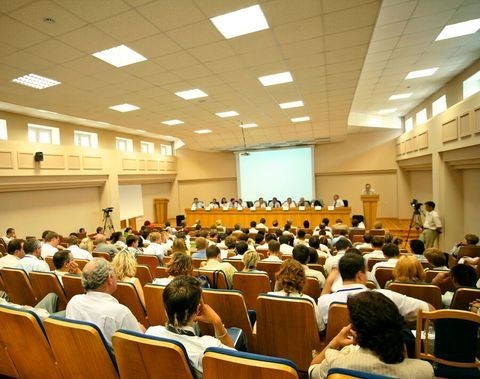David Ervin
Overview
Advertisers, broadcasters and publishers trust David Ervin to structure deals and protect their brands and content in a competitive market where technology continues to transform the media and marketing landscape. Leveraging nearly 30 years of transactional and litigation experience – uniquely focused on the intersection of advertising and intellectual property law – he is known for providing comprehensive advice that is both practical and reliable and his effective and thoughtful advocacy.
Career & Education
- Government Accountability Office
Office of the General Counsel, 1991
- Government Accountability Office
- American University, B.A., cum laude with university honors, international relations, 1989
- American University Washington College of Law, J.D., cum laude, 1992
- District of Columbia
- Virginia
David is amazing. He is super helpful and knows the law off the top of his head.
— Chambers USA
David's Insights
Client Alert | 3 min read | 02.11.26
On July 8, 2025, the U.S. Court of Appeals for the Eighth Circuit vacated the Federal Trade Commission’s (FTC) Rule Concerning Subscriptions and Other Negative Option Plans, commonly known as the “Click-to-Cancel” rule. As detailed in a previous client alert, the rule was intended to regulate negative option plans[1]— such as subscriptions and automatic renewals — by imposing stringent requirements on businesses, including streamlined cancellation processes and enhanced disclosure obligations. The Eighth Circuit vacated the Click-to-Cancel rule because it found that the FTC had failed to comply with mandatory procedural requirements. As a result, the rule is no longer in effect, and businesses are not currently subject to its mandates.
Firm News | 3 min read | 02.03.26
World Trademark Review Ranks Crowell & Moring in WTR 1000 2026 Guide
Client Alert | 6 min read | 11.13.25
Speaking Engagement | 11.06.25
Representative Matters
- Represented financial services, alcoholic beverage, quick-service restaurant and travel companies in successful negotiation of advertising agency agreements with variety of agency holding companies.
- Represented leading apparel, appliance and retail brands in successful negotiation of variety of celebrity endorsement, brand ambassador and talent agreements.
- Advised automotive, audio products and retail companies in connection with the launch of consumer loyalty and rewards programs.
- Represented global hospitality company in successful negotiation of sports sponsorship and marketing agreements with the NFL, Formula 1 racing team and English Premier League soccer team.
- Represent commercial broadcasters in copyright royalty proceedings including In re Distribution of Cable Royalty Funds, No. 16-CRB-0009 CD (2014-17) involving distribution of cable television royalties in excess of $800 million
- Successfully represented global hospitality company in trademark infringement and false advertising counterclaims against online travel agency in USDC-ED Texas
David's Insights
Client Alert | 3 min read | 02.11.26
On July 8, 2025, the U.S. Court of Appeals for the Eighth Circuit vacated the Federal Trade Commission’s (FTC) Rule Concerning Subscriptions and Other Negative Option Plans, commonly known as the “Click-to-Cancel” rule. As detailed in a previous client alert, the rule was intended to regulate negative option plans[1]— such as subscriptions and automatic renewals — by imposing stringent requirements on businesses, including streamlined cancellation processes and enhanced disclosure obligations. The Eighth Circuit vacated the Click-to-Cancel rule because it found that the FTC had failed to comply with mandatory procedural requirements. As a result, the rule is no longer in effect, and businesses are not currently subject to its mandates.
Firm News | 3 min read | 02.03.26
World Trademark Review Ranks Crowell & Moring in WTR 1000 2026 Guide
Client Alert | 6 min read | 11.13.25
Speaking Engagement | 11.06.25
Recognition
- Chambers USA: Advertising: Transactional and Regulatory – Nationwide (Band 3), 2021–2025
- Super Lawyers: Washington, D.C. Advertising Law, 2025
- Legal 500: Media, Technology and Telecoms: Advertising and Marketing: Transactional & Regulatory, 2020–2025
- Legal 500: Media, Technology and Telecoms: Advertising and Marketing: Litigation, 2020–2025
- The Best Lawyers in America: Advertising Law, 2018–2026
David's Insights
Client Alert | 3 min read | 02.11.26
On July 8, 2025, the U.S. Court of Appeals for the Eighth Circuit vacated the Federal Trade Commission’s (FTC) Rule Concerning Subscriptions and Other Negative Option Plans, commonly known as the “Click-to-Cancel” rule. As detailed in a previous client alert, the rule was intended to regulate negative option plans[1]— such as subscriptions and automatic renewals — by imposing stringent requirements on businesses, including streamlined cancellation processes and enhanced disclosure obligations. The Eighth Circuit vacated the Click-to-Cancel rule because it found that the FTC had failed to comply with mandatory procedural requirements. As a result, the rule is no longer in effect, and businesses are not currently subject to its mandates.
Firm News | 3 min read | 02.03.26
World Trademark Review Ranks Crowell & Moring in WTR 1000 2026 Guide
Client Alert | 6 min read | 11.13.25
Speaking Engagement | 11.06.25
Insights
Copyright: The Contours of Copyright Law in the Age of AI Are Just Coming Into Focus
|01.10.24
Litigation Forecast 2024
Copyright in the Metaverse: What Advertisers Need to Know
|05.24.23
Retail in the Metaverse and Beyond
The CASE Act Of 2020: New Board To Provide Low-Cost Resolution Of Copyright Small Claims
|06.08.21
Intellectual Property & Technology Law Journal
Stalking Social Media: The Rise in Counterfeit Products and Intellectual Property Concerns
|10.04.19
FashionUnited
Thomson Reuters Names 16 Crowell Lawyers as “Stand-out Lawyers”
|03.07.23
National Advertising Division Updates
|07.23.25
Crowell & Moring’s Retail & Consumer Products Law Observer
Make a Deal Like Mike – Michael Jordan Settles Two Right of Publicity Lawsuits
|11.24.15
Crowell & Moring's Retail & Consumer Products Law Observer
False-and-Misleading-Gram – FDA Issues Warning Letter Based on Kim Kardashian's Instagram Selfie
|08.18.15
Crowell & Moring's Retail & Consumer Products Law Observer
Practices
- Advertising and Brand Protection
- Digital Advertising
- Trademark Counseling and Litigation
- Intellectual Property Litigation
- Emerging Companies and Venture Capital
- False Advertising Disputes and Litigation
- Technology Transactions
- Brand Protection
- Copyright Counseling and Litigation
- Advertising Transactions and Agreements
- Global Advertising and Media
- Artificial Intelligence
- Financial Services Regulatory and Enforcement
- Health Care
- Internet of Things (IoT)
David's Insights
Client Alert | 3 min read | 02.11.26
On July 8, 2025, the U.S. Court of Appeals for the Eighth Circuit vacated the Federal Trade Commission’s (FTC) Rule Concerning Subscriptions and Other Negative Option Plans, commonly known as the “Click-to-Cancel” rule. As detailed in a previous client alert, the rule was intended to regulate negative option plans[1]— such as subscriptions and automatic renewals — by imposing stringent requirements on businesses, including streamlined cancellation processes and enhanced disclosure obligations. The Eighth Circuit vacated the Click-to-Cancel rule because it found that the FTC had failed to comply with mandatory procedural requirements. As a result, the rule is no longer in effect, and businesses are not currently subject to its mandates.
Firm News | 3 min read | 02.03.26
World Trademark Review Ranks Crowell & Moring in WTR 1000 2026 Guide
Client Alert | 6 min read | 11.13.25
Speaking Engagement | 11.06.25






